HR comparison
-
@freeheeler Nope, different sessions, but S9PP graph is a lot noisier
-
Intervals today, as good as usual, under the rain and with colder temperatures even.
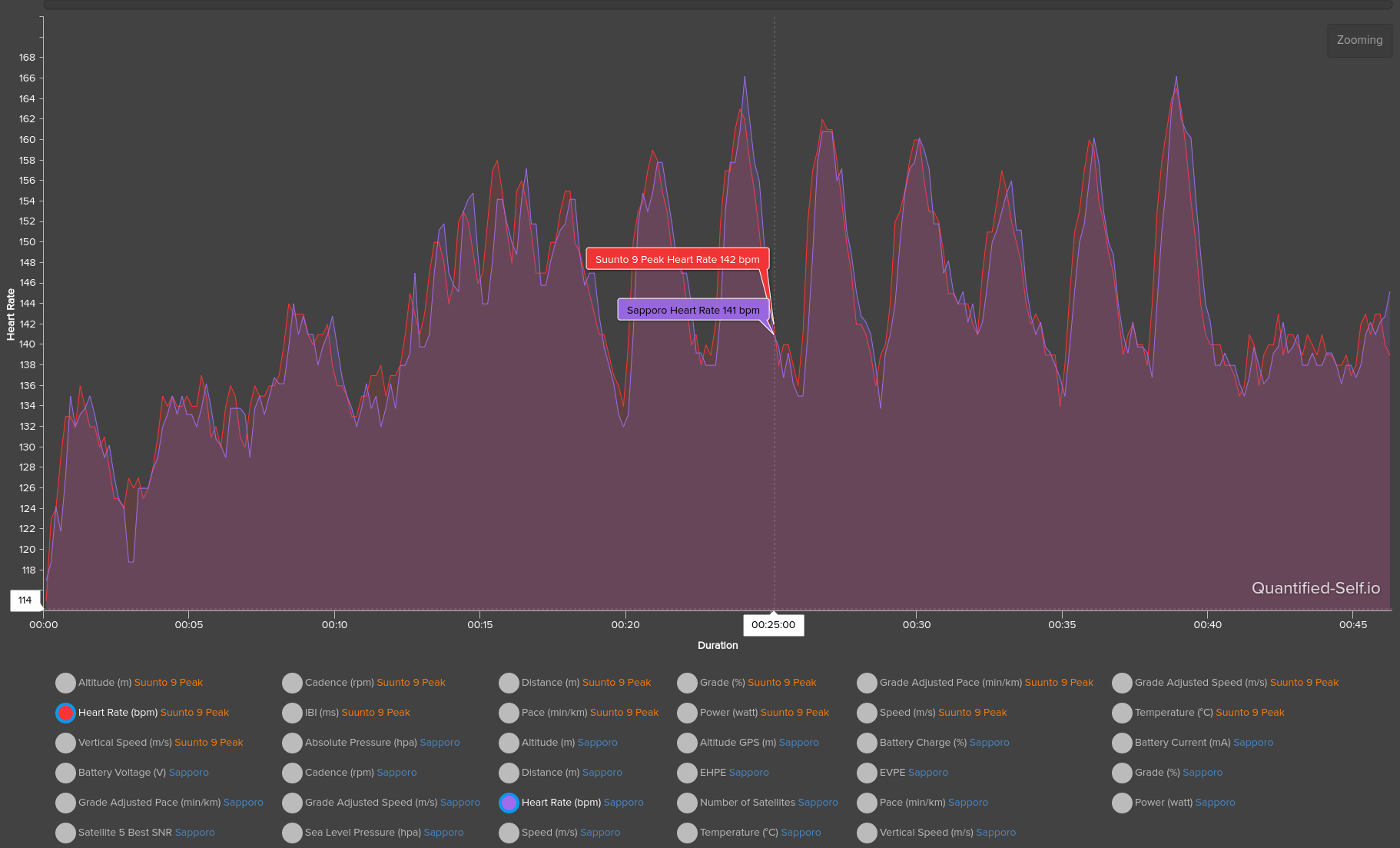
-
@isazi
Lucky you. -
A quick question to everyone with S9PP OHR experience.
I currently own the original S9B with stainless steel bezel and weight of 81g (by specification). The S9B OHR doesn’t work for me for anything other than slow walking. In case of running the HR simply jumps to extremely high and unrealistic values, regardless of how tight the strap is. I knew this buying the watch, so I’ve always used in combination with external HR strap and I’ve been fine with it. I believe the reason for this behavior is the large and top heavy dimensions of the S9B.
But the S9PP with it’s smaller weight and footprint looks like it could solve these issues. My question is - is there a noticeable difference in OHR accuracy between the steel and titanium S9PP models, since this is the only reason I would justify the price premium between the 2 versions? -
@Ivan-Vasilev while you are right about the watch weight as a factor for OHR accuracy, the small difference between steel and titanium does not play a significant role.
All other factors (skin temp, watch position, armband tightness etc) play a way larger role. -
@Ivan-Vasilev In my case, the OHR os the S9P is simliar to the S9B and I use it with a HR strap. I have discovered recently, howevere, that results are almost perfect if I wear the watch really tight, so it does not move at all when running. I have been checking recently and it seems to work as expected. But I need to get used to wear it so tight, TBH.
J
-
Other wrist (left) , surely same position, but this time result is good
 . But what I hate having a watch on left wrist
. But what I hate having a watch on left wrist 
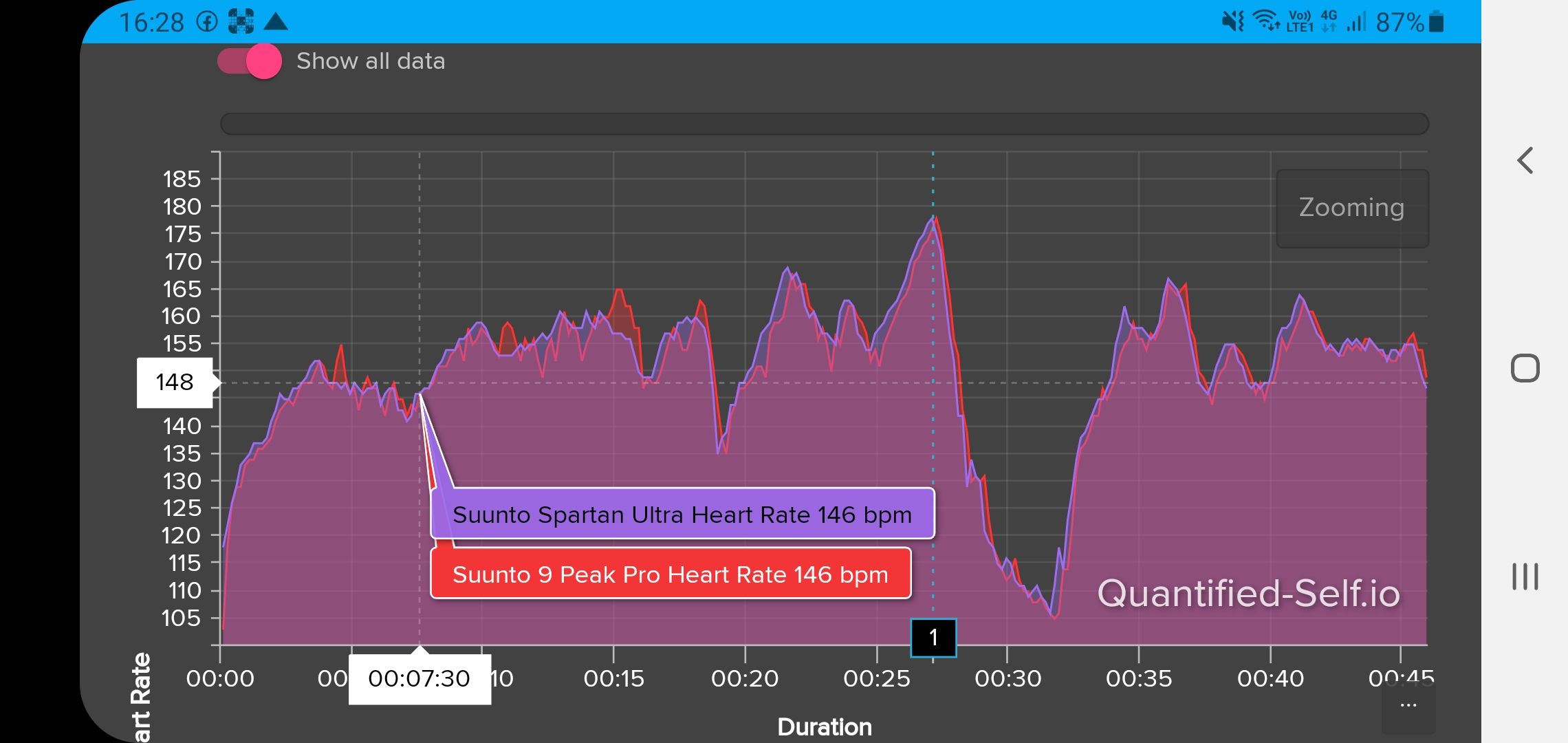
Just a good day or really my normal wrist is less prone to OHR ?
?
If I would have two S9PP to test together, I would have had some answers…
-
@Mff73 better blood flow in left hand

-
For me, It works better than s7 s9p or s5p. They show smoother line but this is filled with details.
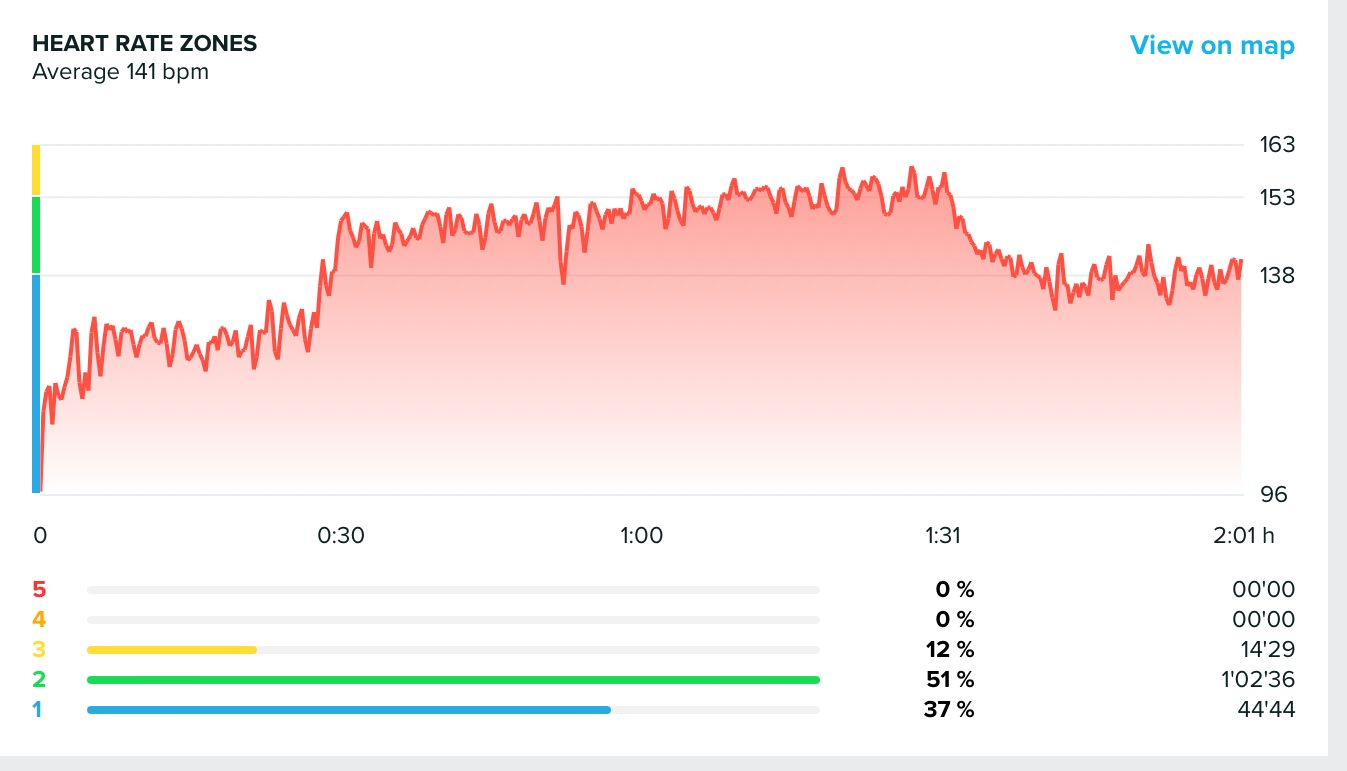
-
Thanks.
In this particular feature (OHR), the problem is to be sure it is working for ourself a’d then t being abl to trust it.
My last run tends to prove (once) the sensor can read my HR while running on left wrist. But for now, I have more bad readings than good ones.
I am maybe not compatible with this technology. -
For me OHR during running isn’t very accurate.
But I was quite surprised today of its accuracy during an indoor ride.
Zwift HR with Wahoo Tickr belt vs S9PP OHR.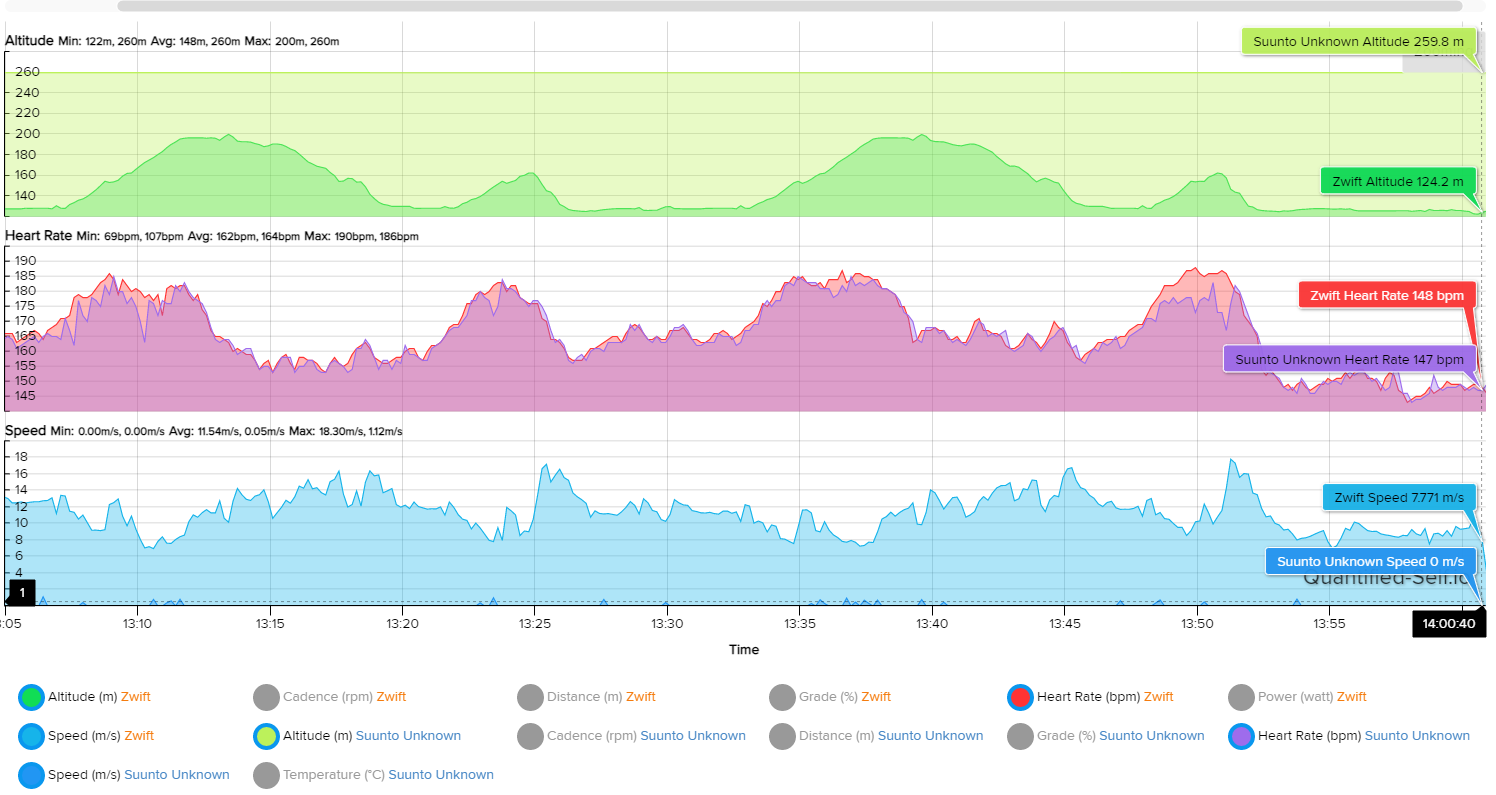
It is often spot on except during the higher intensity efforts.
-
Just for the sake of sharing, here is a comparison with two S9PP and wrist OHR, and SmartSensor.
One S9PP on right wrist, the other on … left one Positionned as well as possible.
Positionned as well as possible.
And chest strap … with activity recorded with SA.Same heart, Same activity (trail in quite cold temperature), not same wrist… and this time left one was the worst
 and right one, not bad in average, but still some short “big” differences).
and right one, not bad in average, but still some short “big” differences).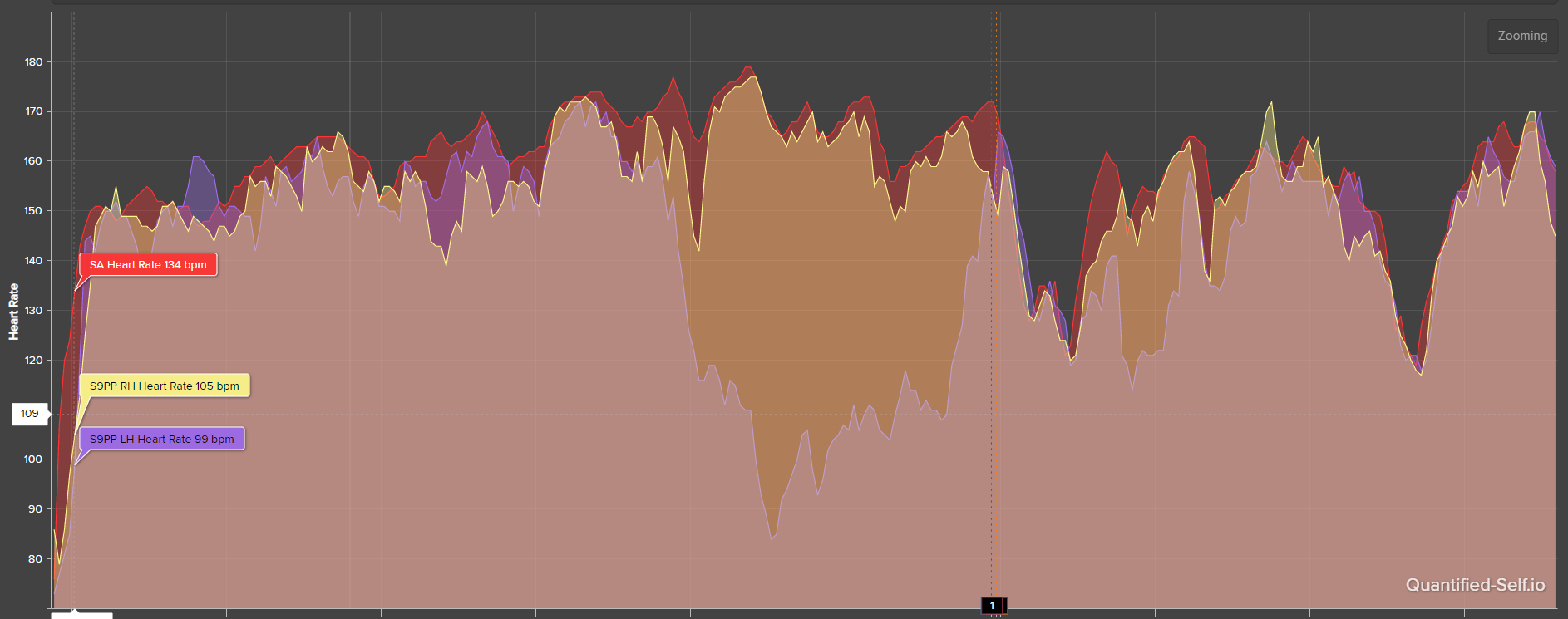
In conclusion, i will continue definitively to use a strap as OHR is too much inconstant for me.
-
In my case, I think I’ve found my sweet spot with S9PP OHR.
For me it struggles with some cadence lock when using it on my strong hand (left) however it performs very decent on my right hand when putting it nearly 2 fingers above wrist bone, even in cold conditions (gloves 🧤 required type of weather), S9PP OHR also follows my HR better in strides peaks, something S9P didn’t,but still far from a belt.
With that said, I train by power when it comes to “quality” workouts, but I do use HR belt for those too for post analysis.
For all other easy running and long running, S9PP OHR performs just fine

-
I sometimes have such drops on belt when running in sub zero temperatures, fixed with tiny amounts of electrode gel. Ohr is fine as long as patch of skin is “readable” by sensor. Usually left wrist has no break from wearing a watch so right wrist give better results. I also noticed that s7 has about 5bpm lower sleep tracking avg hr than s9pp wrist invariant.
-
I tried ohr several times with s9pp. It’s totally unusable .
-
@zhang965 Do you have tattoos or very skinny wrists? I found for me it is very good compared to a belt. The only times it fails are in very cold weather and fast, hard intervals. Otherwise, it matches the belt. For my wife, even an Apple Watch, which is better than Garmin or Suunto in my testing does not work. She is quite thin and has very small wrists.
-
Hi, I recently purchased the new S9PP, and my HR readings are really really bad.
I know that no smartwatch is 100% accurate, but the S9PP sensor doesn’t work on my skinny wrists (no tattoos)… it is wrong by 20 to 30 bpm, even with my resting heart rate. I went for an easy run, normally when I do this I’m in the 130-145 bpm range, and half of the run my HR was above 170 (with a max HR reading of 195, when my HR max is 184), and the other half it was below 110. When resting, it shows readings of more than 60 bpm when I’m at 40-45 (checked).
Previously I had a Garmin Forerunner 245 and a Coros Pace 2, and both showed acceptable readings.
It’s a pity because I still keep my old Ambit 2S, my first GPS watch, and I really like it, and when I found the 349€ Christmas deal on Amazon for the S9PP I didn’t hesitate in buying it. I love the steps that Suunto is taking to improve the app, I love the Suunto Plus options, the build quality of the watch is great, the battery is really good as is the GPS accuracy despite not having dual band… but I’m returning the watch just due to how bad the HR sensor is.
I hope that Suunto will be able to address this issue for future watches.
-
@dmn23 said in HR comparison:
Hi, I recently purchased the new S9PP, and my HR readings are really really bad.
I know that no smartwatch is 100% accurate, but the S9PP sensor doesn’t work on my skinny wrists (no tattoos)… it is wrong by 20 to 30 bpm, even with my resting heart rate. I went for an easy run, normally when I do this I’m in the 130-145 bpm range, and half of the run my HR was above 170 (with a max HR reading of 195, when my HR max is 184), and the other half it was below 110. When resting, it shows readings of more than 60 bpm when I’m at 40-45 (checked).
Previously I had a Garmin Forerunner 245 and a Coros Pace 2, and both showed acceptable readings.
It’s a pity because I still keep my old Ambit 2S, my first GPS watch, and I really like it, and when I found the 349€ Christmas deal on Amazon for the S9PP I didn’t hesitate in buying it. I love the steps that Suunto is taking to improve the app, I love the Suunto Plus options, the build quality of the watch is great, the battery is really good as is the GPS accuracy despite not having dual band… but I’m returning the watch just due to how bad the HR sensor is.
I hope that Suunto will be able to address this issue for future watches.
yo dude, be carefully to mention other brands, this is suunto community forum, we do have fan boys here. LOL
For the OHR, I do have (almost) the same experience as you, but sadly there is no good solution.
There are my 2 points of views:
The OHR is tuned for 80% users. You and me, we are both in the 20% of suunto user, so the solution is not built for us. it’s totally normal, to tune the OHR for these 20% user could be more difficult than what they did for the 80% users.
Second one reason, suunto has some fantastic tester which are not representing the users like you or me. I saw a lot of ridiculous stories on this forum like some testers think the vo2max is not useful for them, (So you will not need it), I was totally blown away by these…people.
I’d show you my last review on S9PP OHR.
You can see what we got as replies, the OHR will work better in summer! OH GREAT, PERFECTO, how clever it is, is there anyone who only runs during summer? is there anyone who buys a watch which passed MIL-STD 810G tests only for running in summer?
-
@dmn23 I have been struggling with the OHR for months with a similar experience. I finally found that OHR is much more precise if I wear the watch really tight. It is not as comfortable as I would like, but, on the other hand, I can run without my heart belt. It is worth a try.
J
-
@zhang965 Yes, it’s a shame that the OHR doesn’t work for us. My first thought when I saw its bad performance was thinking that I had a defective unit, but after that I read so many users having the same experience… I really wish Suunto to sort this for all 100% users.
